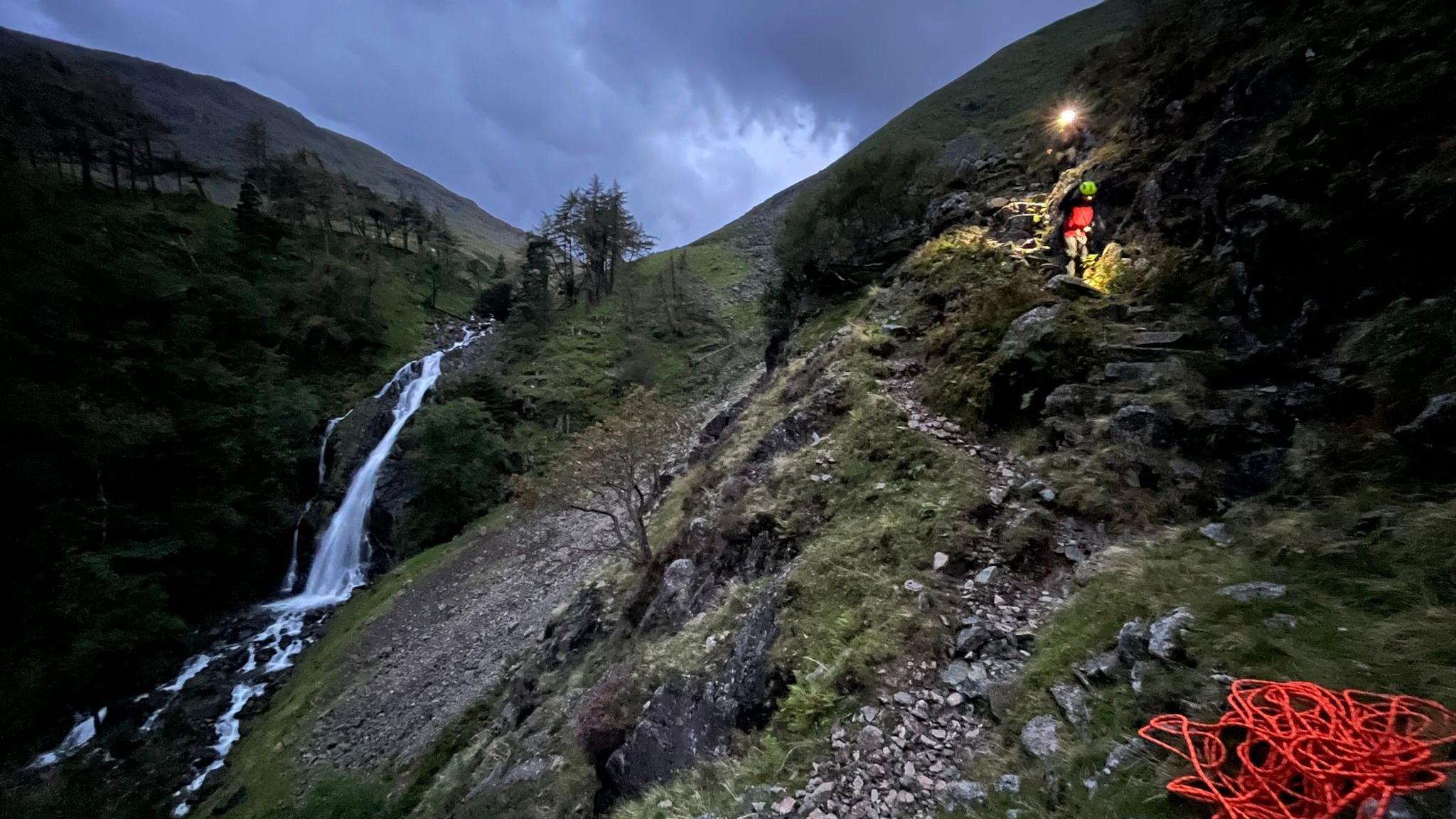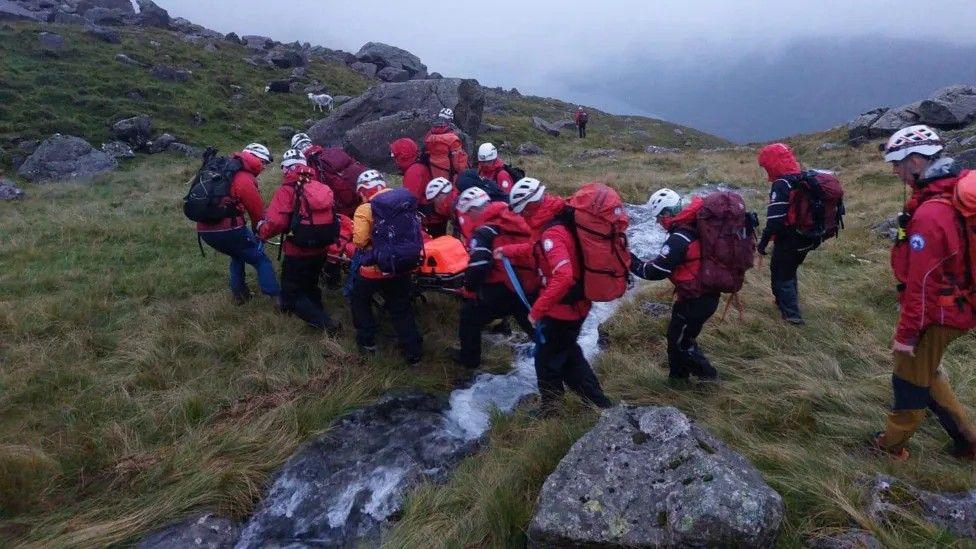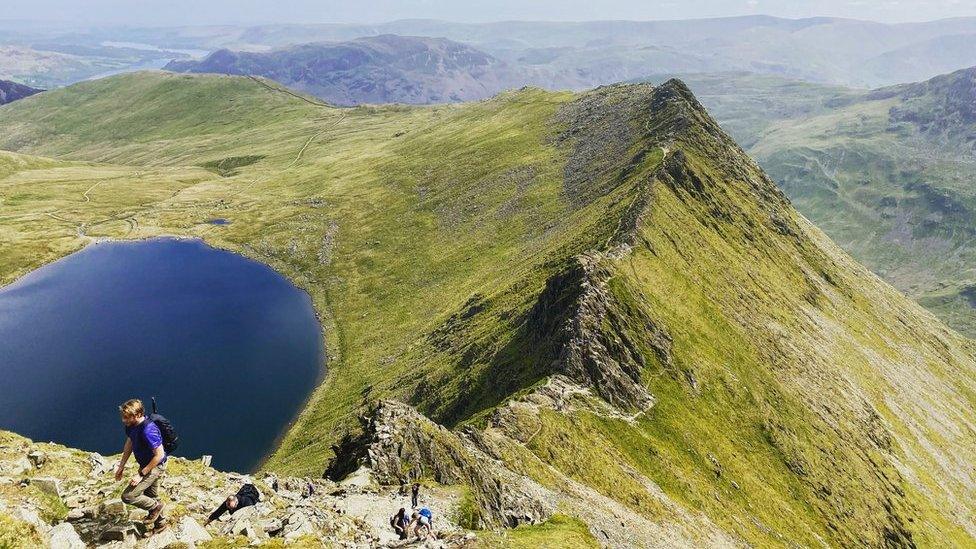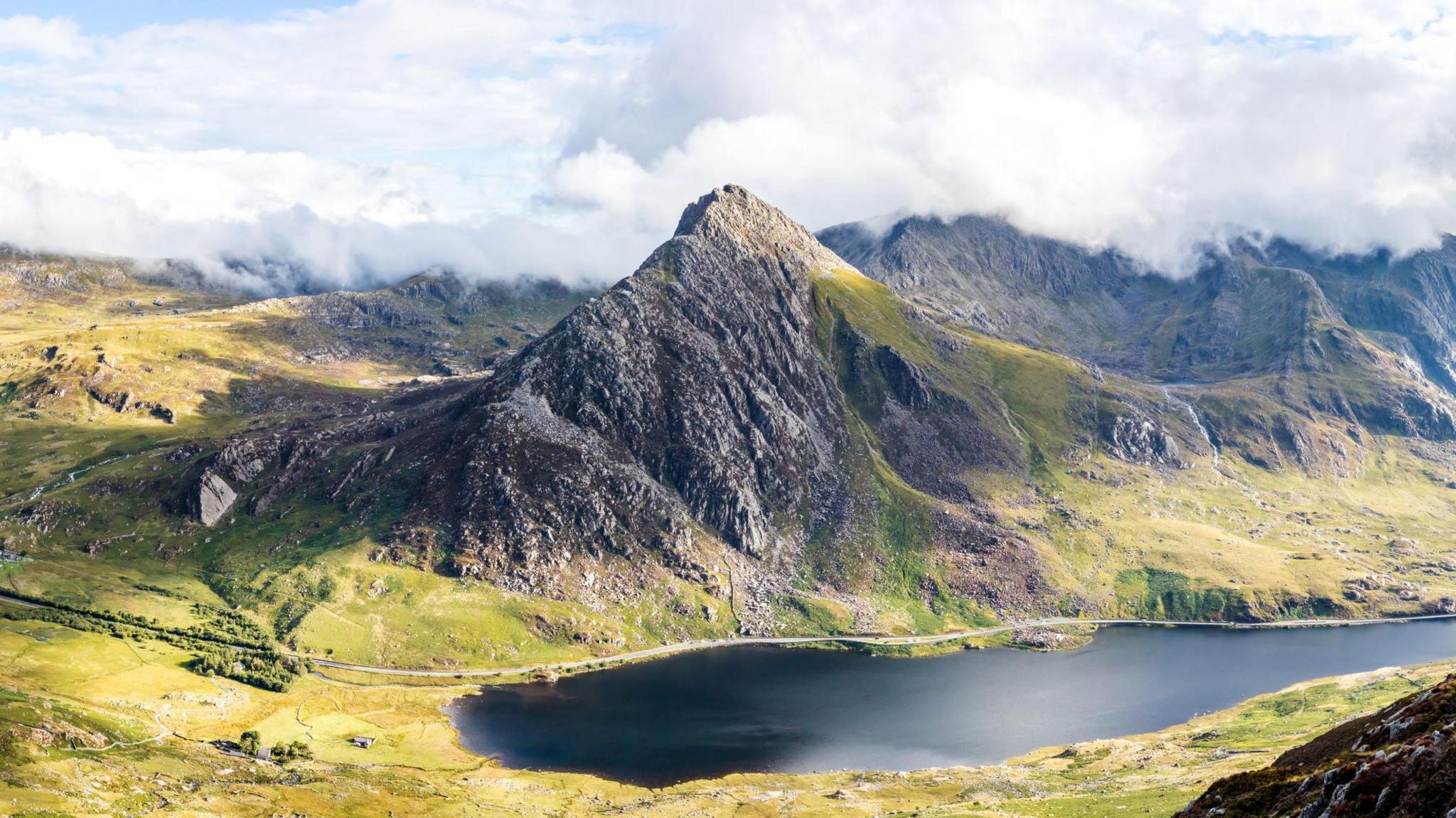Man dies amid 'busy' weekend for mountain rescue

Keswick Mountain Rescue Team (KMRT) said despite the best efforts from the man's son-in-law and the volunteers, he died at the scene
- Published
A man died at a Lake District beauty spot during a "very busy" bank holiday weekend for mountain rescue teams.
Teams were deployed to Taylorgill Force waterfall, Seathwaite, Cumbria, after receiving a report a man was performing CPR on another man on Saturday at about 18:20 BST.
Keswick Mountain Rescue Team (KMRT) said despite the best efforts of the man's son-in-law and the volunteers, he died at the scene.
It was one of 20 callouts volunteers were faced with, although a "significant amount" were deemed to be "avoidable".
A helicopter attempted to assist but due to the man being on "steep and difficult terrain" with poor weather conditions, it had to abort.
Richard Warren, from Lake District Search and Mountain Rescue Association, said "tragic" incidents like these were when people "desperately needed help" from mountain rescue teams.
However, Mr Warren said 35% of the callouts across the Lake District were "avoidable" over the long weekend.
"It was a very busy weekend... and it does have a significant impact on team members," he added.

Mountain Rescue teams had a "very busy" bank holiday weekend with 20 callouts
Mr Warren said: "On Saturday I was in Wasdale's control room who had four rescues going on at the same time. The phones were ringing all the time.
"We need to think about the exhaustion from the rescues, as some incidents had 30 team members going out for many hours," he told BBC Radio Cumbria.
"If teams are out all night searching for people who are lost on these avoidable rescues, if there is a cardiac arrest or major trauma, then the teams are not in the best shape to aid those people who desperately need help."
Mountain rescue plea after walkers saved in storm
- Published24 August 2024
Walkers help person struggling on Scafell Pike
- Published26 August 2024
Mr Warren said the avoidable rescues were "primarily with people not knowing the risk they were taking" and "not being prepared".
He advised people heading into the hills to bring a map and compass, check the weather, bring a power bank and stay together as a group.
Lake District Mountain Rescue Teams continued to urge visitors to make use of online services that offer advice about enjoying the outdoors safely, including Adventure Smart, external.
Follow BBC Cumbria on X, external, Facebook, external, Nextdoor and Instagram, external. Send your story ideas to northeastandcumbria@bbc.co.uk.
Related topics
More stories from BBC North East and Cumbria
- Published30 August 2022

- Published7 August 2024
